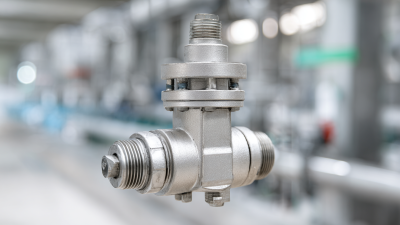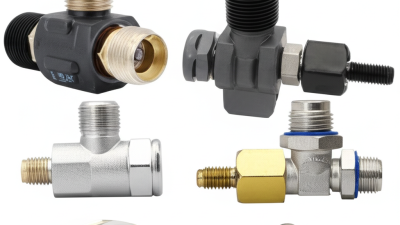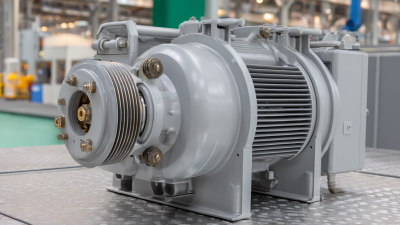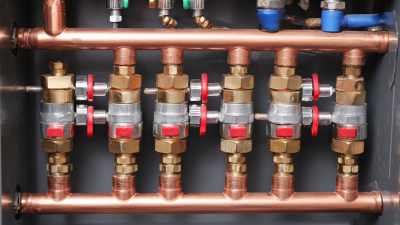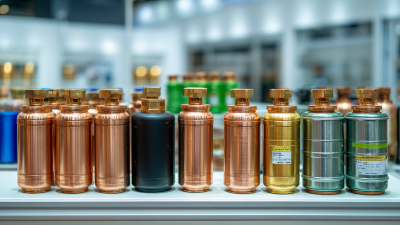




In today’s fast-paced world, optimizing the performance of our home appliances is more crucial than ever, especially as we face rising energy costs and increasing climate variability. Among these essential appliances, the Air Conditioner Dryer Filter plays a pivotal role in maintaining indoor air quality and ensuring efficient cooling. With a plethora of options available on the market, choosing the right filter can be overwhelming for consumers. This complete guide is designed to demystify the selection process, providing insight into the types of Air Conditioner Dryer Filters that best suit different needs, their impact on performance, and tips for proper maintenance. As we delve into this topic, we will also explore the future of these filters and their potential advancements, ensuring you make an informed decision for your home while maximizing comfort and energy efficiency.

When selecting an air conditioner dryer filter, several key factors should be considered to ensure maximum efficiency. First and foremost, the size and type of the filter must match your air conditioning system's specifications. Filters come in various dimensions and materials, including pleated, activated carbon, and HEPA options. A proper fit not only ensures optimal airflow but also minimizes the risk of leaks and system strain.
Another crucial aspect to consider is the filter’s MERV rating, which measures its ability to capture airborne particles. Higher MERV ratings indicate a filter that can trap smaller particles, improving indoor air quality. However, it's important to balance this with your system's capabilities, as filters that are too dense can restrict airflow, leading to increased energy consumption and potential damage to the unit. Regular maintenance and timely replacement of filters are also essential for maintaining peak performance and prolonging the lifespan of your air conditioning system.

When selecting the right air conditioner dryer filter, understanding filter ratings like MERV (Minimum Efficiency Reporting Value) and FPR (Filter Performance Rating) is crucial. MERV ratings range from 1 to 16, with higher numbers indicating greater filtration efficiency. Filters with MERV ratings of 8 or higher are capable of trapping small particles, including pollen, pet dander, and dust mites, significantly improving indoor air quality. This is especially important for individuals with allergies or respiratory conditions.
FPR ratings, on the other hand, are often represented on a scale from 4 to 10 and provide a user-friendly way to gauge filter performance. Higher FPR ratings correspond to increased ability to capture airborne particles, including smoke and fine dust. While MERV ratings are more standardized, FPR ratings can simplify the decision-making process for consumers who may be overwhelmed by technical specifications. Ultimately, both ratings are designed to help users choose filters that not only enhance air quality but also support the efficient operation of their HVAC systems.
This chart illustrates the average MERV (Minimum Efficiency Reporting Value) ratings and FPR (Filter Performance Rating) ratings of different types of air conditioner dryer filters, along with their corresponding impact on indoor air quality.
Regular maintenance of air conditioner dryer filters is crucial for ensuring optimal performance and efficiency. Industry experts recommend replacing these filters every 1 to 3 months, depending on usage and environmental factors. According to the U.S. Department of Energy, a clean filter can improve airflow and efficiency by up to 15%. This not only enhances the cooling capability of your system but also reduces energy consumption, leading to substantial cost savings on utility bills.
Neglecting filter maintenance can result in a variety of problems, including reduced air quality and increased wear on the system. A report from the Environmental Protection Agency highlights that indoor air can be up to five times more polluted than outdoor air, making it essential to maintain clean filters to protect against airborne contaminants. In homes with pets or during high pollen seasons, filters may need to be replaced even more frequently, potentially every month, to maintain optimal air quality and performance. Ensuring timely filter replacement is a simple yet effective way to prolong the life of your air conditioning system while keeping your indoor environment healthy and comfortable.

When it comes to maintaining optimal performance in your air conditioning system, choosing the right dryer filter is pivotal. The right filter not only promotes efficient airflow but also enhances the system's longevity, leading to significant energy savings. According to the U.S. Department of Energy, regular maintenance, including filter changes, can improve air conditioning efficiency by up to 15%. This highlights the importance of selecting a suitable filter type for residential applications.
Among the various types of air conditioner dryer filters, five stand out for residential use: fiberglass filters, pleated filters, electrostatic filters, activated carbon filters, and HEPA filters. Fiberglass filters are cost-effective and provide basic protection, while pleated filters are more efficient, capturing smaller particles. Electrostatic filters utilize static electricity to trap allergens, making them ideal for allergy sufferers. Activated carbon filters excel in eliminating odors, while HEPA filters are the gold standard for air quality, removing 99.97% of particles as small as 0.3 microns according to the EPA. Each type caters to specific needs, so it's crucial to assess your home's requirements before making a decision.
| Filter Type | Material | MERV Rating | Lifespan | Ideal Usage |
|---|---|---|---|---|
| Fiberglass Filters | Fiberglass | 1-4 | 1-3 months | Basic air filtration |
| Pleated Filters | Polyester or Cotton | 5-8 | 3-6 months | General residential use |
| Washable Filters | Foam or Metal | Varies | 1 year or more | Reusable and eco-friendly |
| HEPA Filters | Fiber Glass and Synthetic | 13-16 | 6-12 months | Allergy sufferers |
| Carbon Filters | Activated Carbon | 4-6 | 3-6 months | Odor removal |
When it comes to selecting the right air conditioner dryer filter, understanding the balance between cost and performance is crucial. A recent report by the American Society of Heating, Refrigerating and Air-Conditioning Engineers (ASHRAE) highlights that filter material significantly influences both airflow resistance and particulate capture efficiency. For instance, high-efficiency particulate air (HEPA) filters, while more expensive, can capture up to 99.97% of particles down to 0.3 microns, translating to enhanced indoor air quality and system performance. In contrast, cheaper fiberglass filters may compromise effectiveness, capturing only about 10% of the same particles, raising concerns over system efficiency and longevity.
The lifespan of various filter materials also plays a key role in overall cost-effectiveness. According to a study by the U.S. Department of Energy, while pleated filters have a higher upfront cost, their extended service life—up to six months—outweighs the cheaper disposable options that require monthly replacement. Additionally, dirty filters can reduce HVAC efficiency by approximately 15%, leading to increased energy bills. Thus, investing in a quality filter not only optimizes performance but can also lower long-term operational costs, reaffirming the adage that you often get what you pay for in HVAC maintenance.
